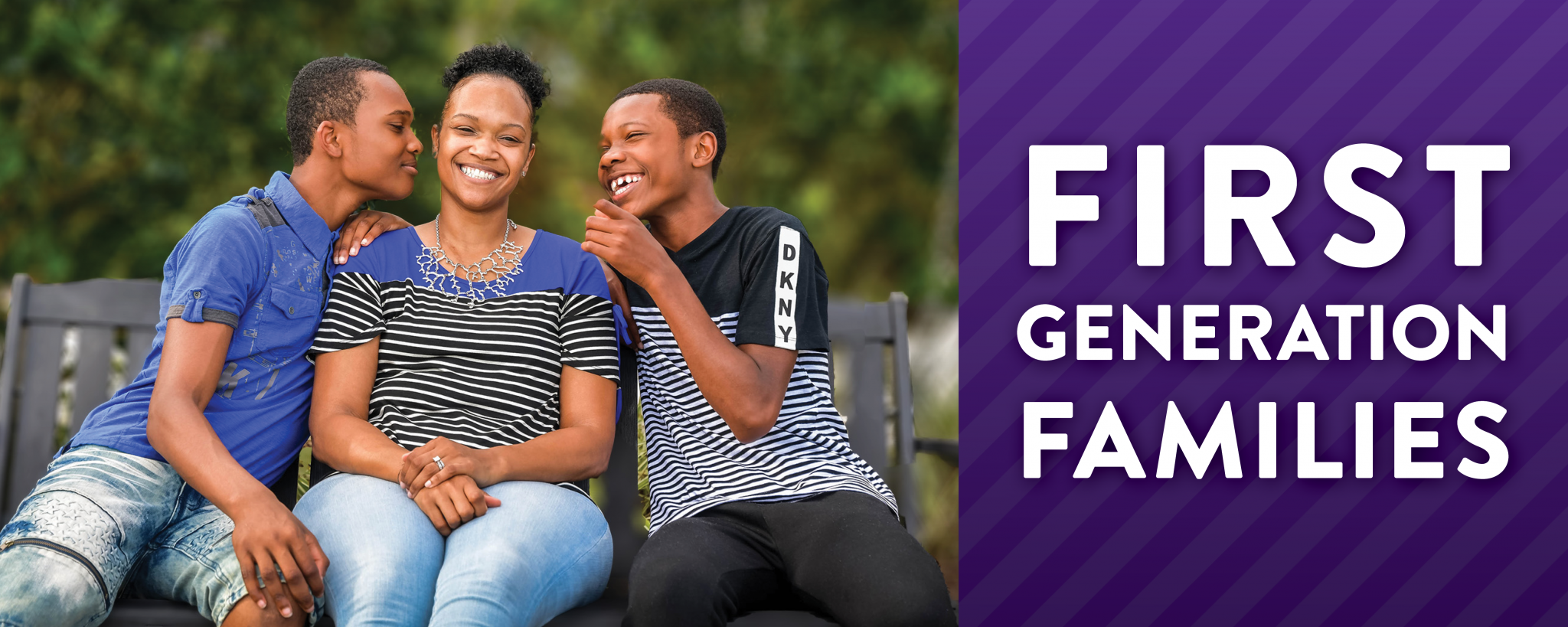Who is a first-generation student?
A first-generation student is a college student who is the first in their family (one or more parent does not have a four-year college degree) to go to and graduate from college.
Having a student who is the first member of a family to attend college brings a great sense of pride to a family. For parents of a first-generation college student, we want to help you navigate this transition for you and your student.
Many common concerns for first-generation students and their families include:
- Academic adjustment – “I don’t understand this assignment; maybe I’m not smart enough.”
- Time management – “How can I get this homework done when I have to work 30 hours?”
- Financial concerns – “It seems like everyone goes out to eat every night; I can’t afford that.”
- Feelings of isolation – “Everyone else seems to know what to do; no one else in my family finished college, so maybe I wasn’t meant to either.”
Did you know…
- Only 30% of first-generation students utilized academic support services, compared to 37% of their continuing-generation peers
- 65% of first-generation students use financial aid services, compared to only 49% of their continuing-generation peers
Supporting Your First-Generation Student
As parents or family of a first-generation college student, we know that supporting them in their college journey can sometimes be a challenge. Here are some general strategies and tips you can use to support your student:
- Listen. Being a listening ear for your student can go a long way. Just letting your student know that you support them in their decision to attend college and that you will be there every step of the way with them can mean a lot; it also helps let your student know they aren’t alone and can come to you when they need support.
- Go through the process with them. Let your student know you want to be a part of their college experience. Starting from the admissions application, go through every process with them. This will show your student that you have taken an interest in their experience and are doing your best to learn these processes as well so that you can help when needed.
- Educate yourself. Do some homework on your own. Even though you may not have experienced submitting a college application or filling out a FAFSA doesn’t mean you can’t be helpful to your student. Once your student lets you know they are interested in attending college, do your own research to help familiarize yourself with these processes. Research the universities your student is interested in and educate yourself about what your student will soon be experiencing. This will definitely impress your student and let them know you are supportive and want to help.
- Attend SOAR with your student. SOAR is UCA’s freshman orientation program, and there is programming specifically for parents and family members during these events. Attending SOAR with your student will educate you more about UCA and what your student’s experience will be like as a new Bear. During SOAR, you’ll be introduced to all the resources UCA has to succeed and how you can be a partner and champion in your student’s success.
- Join the UCA Family Network. Joining the UCA Family Network is a great way to stay involved and connected with your student during their college experience. You’ll receive monthly newsletters with helpful information, upcoming deadlines, and great topics of conversation you can have with your student the next time you talk to them.
Overcoming Imposter Syndrome
“Imposter Syndrome” is the thought or idea that you have only succeeded due to luck and not by talent or qualifications. This is a common feeling found among many college students, but especially among first-generation students. Here are some steps to help your student overcome imposter syndrome:
- Believe in them, and encourage them to believe in themselves. Help them understand that they don’t have to be perfect, and they should be proud of what they have achieved. They are not in college by mistake.
- Help them identify their feelings and counter them. By identifying the thoughts that are upsetting them, they can then pose a counter argument to the negative thoughts to help them think more positively.
- Encourage them to reach out for help. If these negative thoughts seem to be taking on a huge role in their life, encourage your student to reach out to help. UCA’s Counseling Center is a great on-campus resource for students to utilize!
- Find role models. Finding a role model with a similar background can be really helpful for your student. A role model or mentor can help your student interpret their experiences and provide some great advice to your student.
- Help them know that they are not alone. Let your student know that they are not along and imposter syndrome is experienced by thousands of people who have overcome it, and they can get through it, too.
Conversation Starters
We know it can often be a challenge knowing what exactly you should ask your student or what to talk about with them in relation to their college experience. Asking the right questions can ensure you are able to have a full conversation with your student. Here are some conversation starters to get you started:
Prior to Starting College:
- Have you thought about what you hope to major in and potential careers within those majors? Let’s explore majors and potential careers together.
- What do you think will be most challenging for you as you transition to college life? What do you think will be easy?
- What are some goals you have for yourself during your college experience? How can I help you achieve those?
- How do you intend to balance all of the responsibilities you will have as a college student? Can I help you prioritize?
First Semester of College:
- How is your semester going so far? What is your favorite class/professor and why?
- How do you feel you are transitioning to college life? Is there anything you feel you are struggling with or doing well with? How can I help you adjust?
- What clubs and student organizations have you joined so far?
- What are some goals you have for yourself this semester? How do you plan to achieve them, and how can I help you achieve them?
- What is going well so far this semester?
- What are you most excited about this semester?
- Have you updated your resume lately? Are you planning to visit the Career Services office or attend any of their career readiness workshops?


